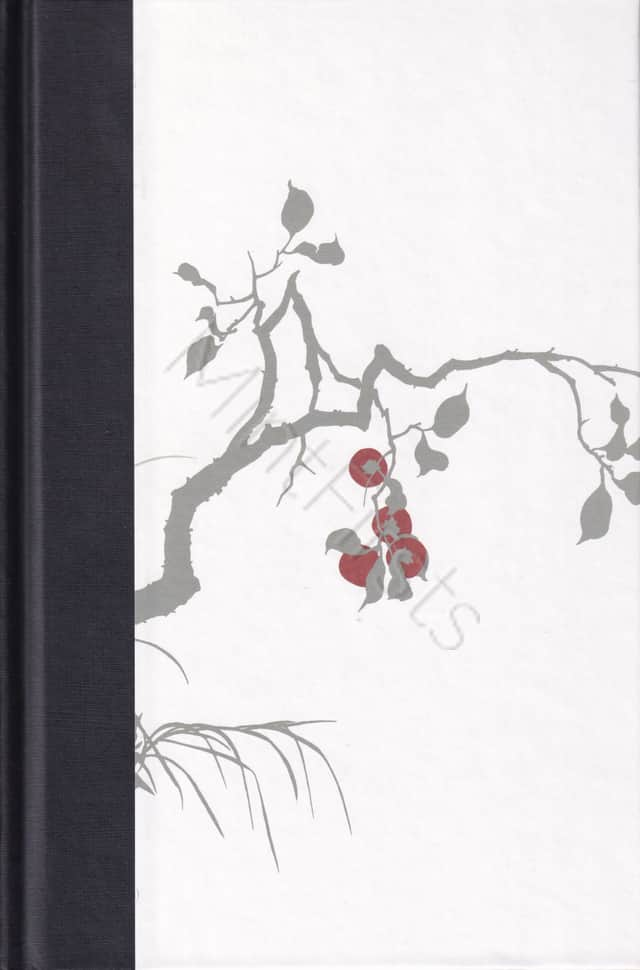Established
2004
Relaunched
2024
Our booksHow we tradeAbout usCredits & thanksYour account
- Home page
- Our books
- How we trade
- About us
- Credits & thanks
- Your account
- Your cart
MENU
Blind Willow, Sleeping Woman
Signed limited first edition of Murakami's Blind Willow, Sleeping Woman

Haruki Murakami; translated by Philip Gabriel ⦗James Philip Gabriel⦘ and Jay Rubin
Limited first edition in English. 8vo., pp. x, 334, [8, blank]. Publisher's quarter-bound black cloth over illustrated, cream paper-covered boards, lettered in silver to spine; brown endpapers. #695 / 1000 numbered copies, with the publisher's bookplate signed in English by the author, tipped-in to the half-title page. As issued, without dustjacket, in a matching black cloth slipcase stamped to front with willow motif in silver. Preceding the Japanese issue, Mekurayanagi to nemuru onna (2009), by three years, and the American edition by a month.
Translated from the Japanese by Philip Gabriel and Jay Rubin. An eclectic collection of twenty-four short stories, written between 1980 and 2005, and selected by the author himself with some specifically revised for this compilation.
Of them, "The Seventh Man" originally appeared in Granta; "Blind Willow, Sleeping Woman", "Birthday Girl" and "Chance Traveller" in Harper's; "Dabchick" in McSweeny's; "Aeroplane: Or, How He Talked to Himself as if Reciting Poetry" (originally published as "Airplane"), "The Folklore for My Generation: A Pre-history of Late-Stage Capitalism" (originally published as "The Folklore of Our Times" and translated by Alfred Birnbaum), "Hunting Knife", "The Ice Man" (in a translation by Richard Peterson), "The Kidney-Shaped Stone That Moves Every Day", "Man-eating Cats", "New York Mining Disaster", "A 'Poor Aunt' Story", "Tony Takitani", "A Shinagawa Monkey", "Where I'm Likely to Find It", and "The Year of Spaghetti" in The New Yorker; "Crabs" in Storie Magazine; and "The Mirror" in The Yale Review. "Firefly" originally appeared in the author's novel Norwegian Wood (2000).
In his four-page introduction, Murakami states, "I find writing novels a challenge, writing stories a joy. If writing novels is like planting a forest, then writing short stories is more like planting a garden."
Winner of the Frank O'Connor International Short Story Award – the world's richest short story prize – with the jury calling it a "truly wonderful collection" from a "master of prose fiction."
"Tony Takitani" was made into a 2004 Japanese film directed by Jun Ichikawa, starring Issey Ogata and Rie Miyazawa, with the soundtrack composed by Ryuichi Sakamoto.
"An intimate pleasure." –Ruth Scurr, The Times
special feature
signed
edition
first in English
format
hardback, limited edition
scarcity
scarce
publisher
Harvill Secker
published in
London
publication year
2006
ISBN
1843432692
height × width
25 × 16.5 cm
genre
literary fiction
language
English
binding style
quarter cloth
binding state
original binding
condition . . .
mint
of slipcase
mint
GBP£ 500
EUR€ 571
USD$ 673
ref.Q7H 89U